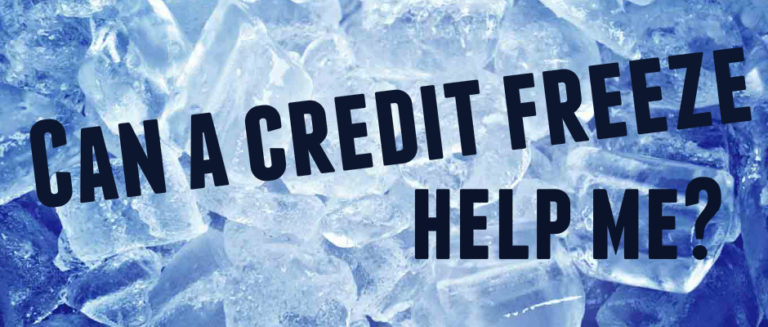


If you have a credit lock through TrueIdentity or TransUnion Credit Monitoring, you’ll log into those product sites to lock or unlock. A credit freeze gives you peace of mind knowing that your credit report is secure. One difference between credit freeze and a TransUnion credit lock is where you go to manage it. To those still feeling left out by either company after this spate of news, I have only one thing to say (although I feel a bit like a broken record in repeating this): Assume you’re compromised, and take steps accordingly. Freezing your credit reduces the ability for someone to create a fraudulent credit account in your name. A credit freeze, also known as a security freeze, lets you restrict access to your credit report, which in turn makes it more difficult for identity thieves. At the same time, Equifax’s erstwhile CEO informed Congress that the breach was the result of even more bone-headed security than was first disclosed. You, too, will not be able to open new credit while a freeze is in. Meanwhile, big three credit bureau Equifax added 2.5 million more victims to its roster of 143 million Americans who had their Social Security numbers and other personal data filched in a breach earlier this year. A security freeze means that your credit file cannot be shared with potential creditors. It was more like three billion (read: all) users. Yahoo! announced that, our bad!: It wasn’t just one billion users who had their account information filched in its record-breaking 2013 data breach. Well buck up, camper: Both companies took steps to make you feel better today. But if you go that route, be sure to keep your PIN in a safe place so if you decide to undo that freeze, you won't encounter major delays.Maybe you’ve been feeling left out because you weren’t among the lucky few hundred million or billion who had their personal information stolen in either the Equifax or Yahoo! breaches. If you know for a fact that your personal data was recently compromised, then you may want to freeze your credit report. That could prove problematic if, for example, your car dies, you need a new one right away, and you can't get an auto loan because a lender can't check your credit report. But if you lose that PIN, it could take weeks to unfreeze your credit. When you freeze your credit, you're given a PIN you can use to reverse that freeze. What’s more, while setting up a credit freeze is pretty easy, unfreezing your credit can be more difficult. And it also won't alert you to the fact you're looking at a whole bunch of new charges (though ideally, in that situation, your credit card's fraud department might step in). A credit freeze won't do anything to stop that from happening. Agencies have three days to lift the freeze. So let's say a criminal steals your credit card and charges a host of expenses against your account. Credit reporting agencies must lift a freeze no later than one hour after receiving a request by phone or online. It won't prevent fraud on an existing account. But you should know that credit freezes aren't perfect.įor one thing, a credit freeze will only prevent new lenders from pulling your credit report. You may be inclined to freeze your credit if you're worried about falling victim to financial fraud. And you can keep that freeze in place as long as you want. If you activate a credit freeze, an identity thief cannot take.

You can also freeze your credit with Equifax over the phone. A credit freeze keeps new creditors from accessing your credit report without your permission. Contact each of the three major credit bureaus Equifax, Experian and TransUnion individually to freeze your credit: Equifax: Call 80 or go online. A credit freeze is one of the most important steps you can take to protect yourself from having identity thieves open credit accounts in your name. Not only is freezing your credit easy, but it won't cost you anything. A credit freeze helps prevent fraudulent account creation, but it won’t protect your current cards. When you freeze a credit report, your credit information is typically blocked from access by outside parties. You can do so by filling out a form online, though do note you'll need to repeat this process with all three credit bureaus - Experian, Equifax, and TransUnion. What happens when credit reports are frozen. Plus, it's pretty easy to freeze your credit. You can temporarily or permanently remove a credit freeze or thaw it if you plan to apply for new credit or insurance. A credit freeze will stop them from being able to do that, because lenders generally won't loan out money without checking an applicant's credit history first. If a criminal gets ahold of your Social Security number and other personal information, they could attempt to take out a loan in your name. More: Save while you pay off debt with one of these top-rated balance transfer credit cards The upside of freezing your credit Save: This credit card has one of the longest intro 0% interest periods around


 0 kommentar(er)
0 kommentar(er)
